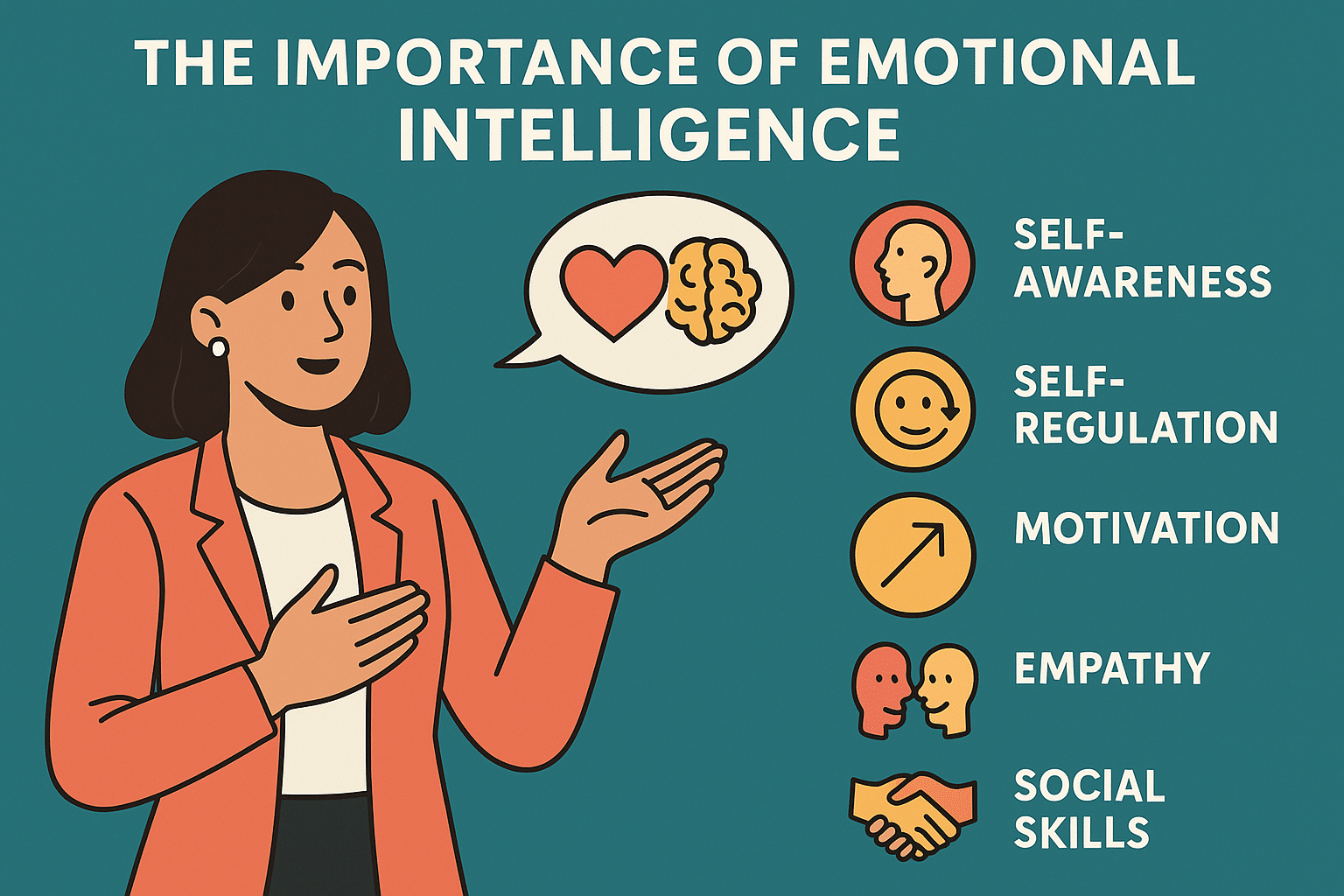In my role as a tutor for PA, Executive Assistant, and Medical Secretary courses at Lewis College, I’ve learned that emotional intelligence is just as important for me as it is for my students. Supporting students and working with colleagues requires understanding emotions both my own and others’ and responding appropriately. Developing my own emotional intelligence has helped me communicate better, manage challenging situations calmly and create a positive learning environment.
Whether you’re an EA, PA or Medical Secretary, success isn’t just about organisation, it’s about people. Emotional intelligence is the ability to manage your own emotions while understanding and responding to the emotions of others.
What Is Emotional Intelligence?
Emotional intelligence involves five key areas:
- Self-awareness – recognising your own emotions and how they affect your behaviour.
- Self-regulation – staying calm and professional, even under pressure.
- Motivation – maintaining focus and positivity, even when things get challenging.
- Empathy – understanding the perspectives and needs of others.
- Social skills – communicating effectively and building strong relationships.
Why It Matters for EAs, PAs and Medical Secretaries
In my experience supporting students who’ve gone on to work in both corporate and healthcare settings, I’ve noticed how emotional intelligence often makes the difference between being good at the job — and being great.
- For EAs and PAs, it means anticipating your executive’s needs before they ask, reading the room in meetings, and adapting your communication style to suit different personalities.
- For Medical Secretaries, it’s about showing empathy to patients while remaining professional, understanding the pressures on consultants, and maintaining calm efficiency even in emotionally charged environments.
Emotional intelligence helps you:
- Build trust and credibility.
- Handle difficult conversations with tact.
- Manage competing demands without losing focus.
- Create a positive, professional atmosphere — even when things get stressful.
Developing Your Emotional Intelligence
Like any skill, emotional intelligence can be developed and it’s something we encourage and help our students build throughout their studies.
Here are a few strategies you can start using today:
- Reflect – notice your reactions in challenging moments.
- Ask for feedback – sometimes others see things we don’t.
- Pause before responding – that short pause can prevent unnecessary conflict.
- Practice empathy – take time to consider how situations feel from someone else’s perspective.
Emotional intelligence isn’t just a soft skill, it’s an essential part of being a strong professional. I’ve seen students transform their confidence and career prospects simply by developing this one area. Whether you’re supporting a busy executive or coordinating patient care, your ability to connect, understand and respond with empathy is what turns good support into exceptional support.
Develop These Skills with Lewis College
At Lewis College, we integrate the development of emotional intelligence into our PA, Executive Assistant, and Medical Secretary Diplomas. Through practical exercises, real-world scenarios, and tutor guidance, students learn not just the technical skills, but the people skills that make them stand out in their careers.
If you’re looking to strengthen your confidence, communication, and professional presence, our courses provide the perfect opportunity to do so – https://www.lewiscollege.co.uk/all-courses/


One Response
So true! Such an important skill to have.